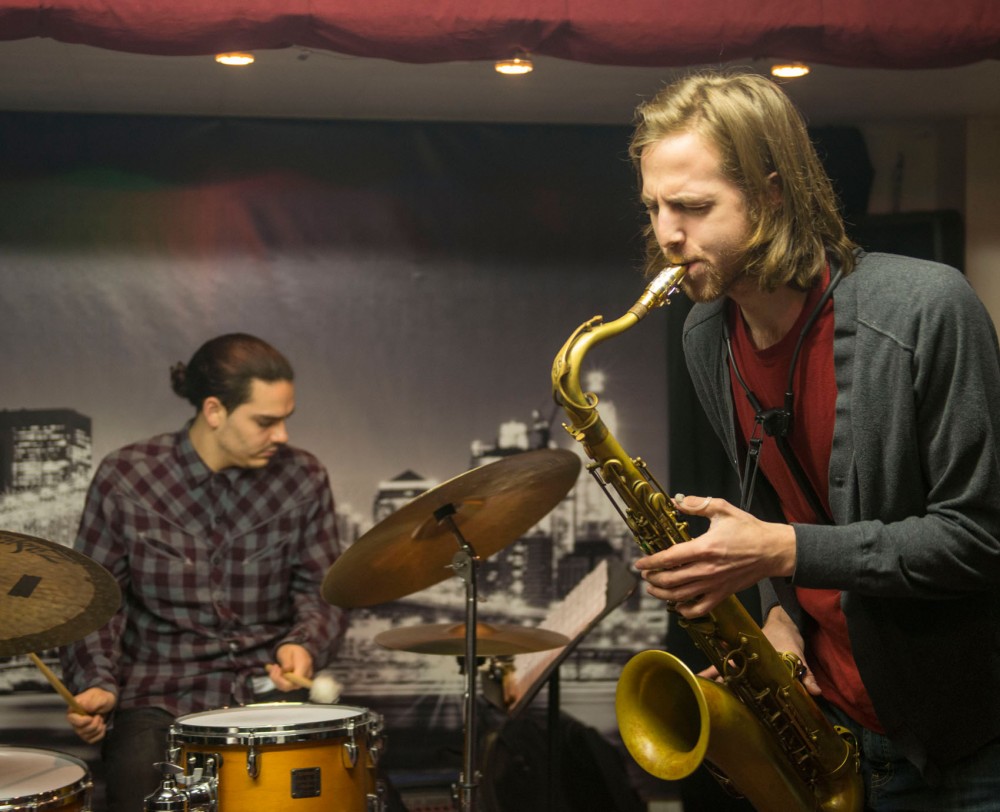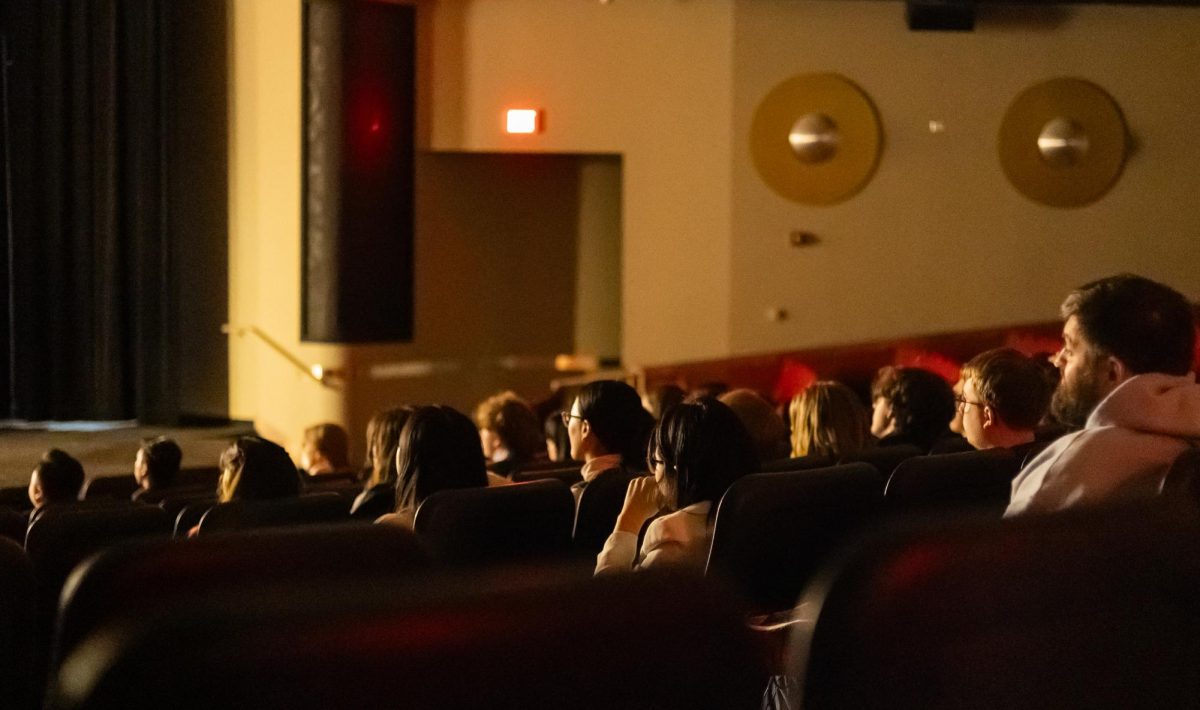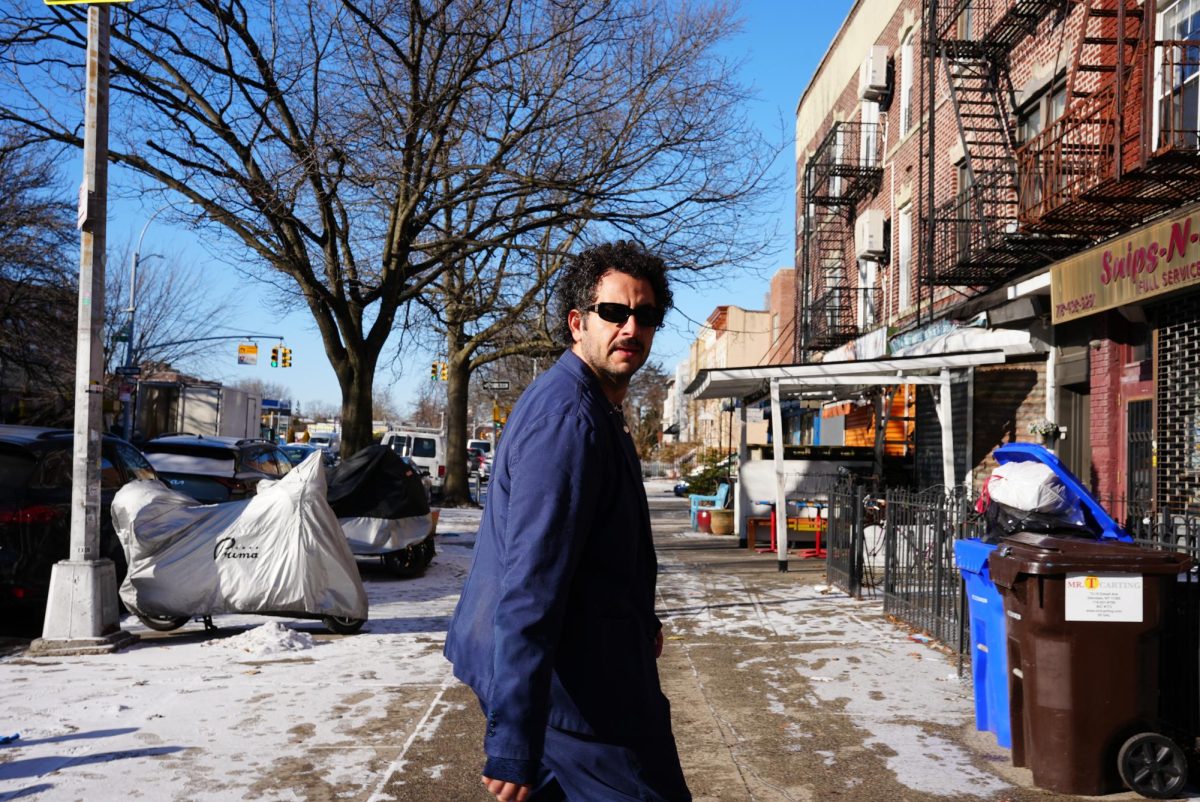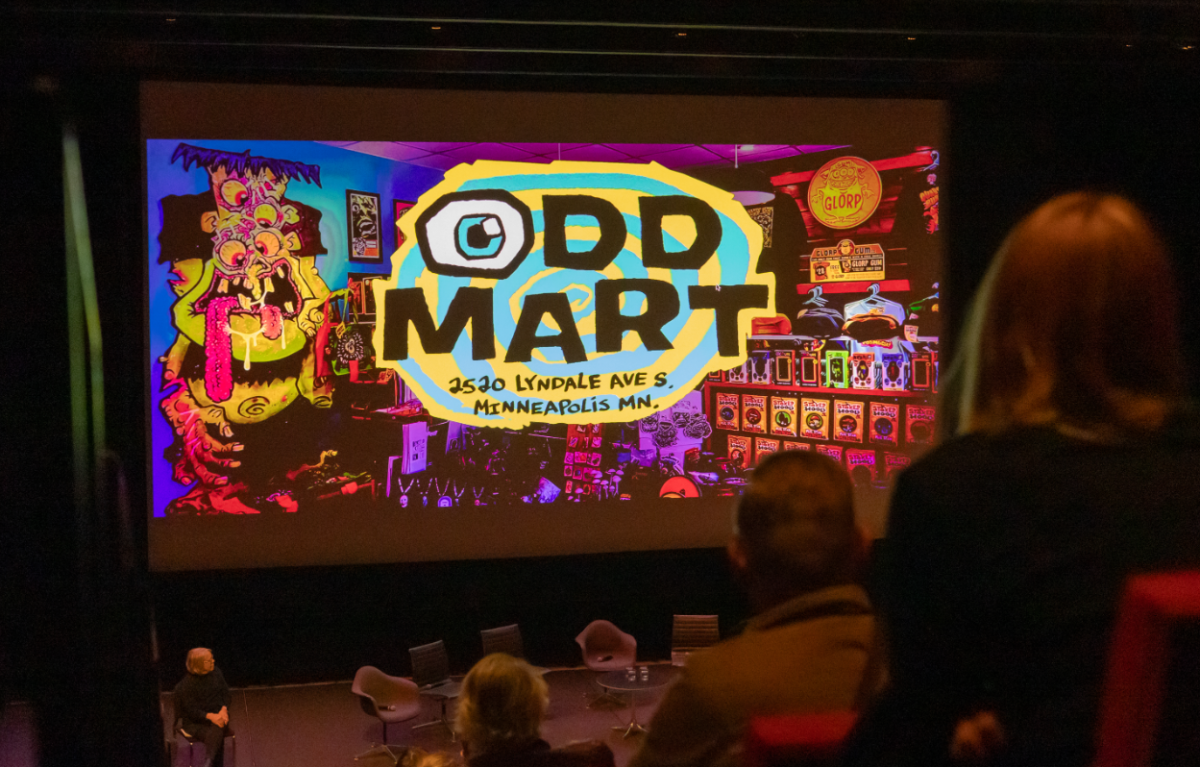Jazz has long hung by an ever-stretching thread in our cultural fabric. It’s deviated from its improvisational underpinnings, becoming a course of academic study.
However, Minneapolis quartet Courageous Endeavors’ freeform approach to the genre is a reminder of why jazz is still fruitful and thriving in niche communities. The band is a part of the evolving Twin Cities jazz scene that’s faced with a crisis of venue homelessness. But the band is convinced the scene is stronger than ever, and its obstacles can be overcome through, well, courageous endeavors.
Courageous Endeavors’ tenor saxophonist, Nelson Devereaux, a University of Minnesota alumnus, is an embodiment of this new wave of Minneapolis jazz musicians who congregate at Icehouse — where the band kicks off their album release tour May 9.
When A&E met them at Icehouse, early ’60s John Coltrane was audible in the venue as the band lounged on the second floor, overlooking the stage. Pianist Joe Strachan — another University alumnus — reclined on a leather couch, as drummer Miguel Hurtado slowly sipped his drink. Bassist Brian Courage sat resolutely next to Devereaux, explaining that he is indeed the band’s namesake.
“These three guys used to play in a different group called Alicia Steele and the Endeavors,” Courage said. “When I moved to town and started playing with them, Nelson had the bright idea of crafting this name. I actually didn’t find out about it until I saw it on the Artists’ Quarter website before our first gig. But it stuck.”
Their sound is far out, yet grounded and structured — think the free jazz soloing of Ornette Coleman reined in by the solid grooves of Coltrane’s straight ahead ensembles, with Devereaux’s airy tenor tone commandeering the listener’s attention. It’s the sound of jazz in 2014, according to Strachan.
“The question about what jazz is in 2014 is just about as unclear as it’s ever been,” Devereaux said.
Yet Courageous Endeavors’ debut album, “Prototype,” is about as convicting an album a new jazz quartet can release. Though “Prototype” could easily be knocked for its eight tracks running together, their congruence is a testimony to the ensemble’s cohesion and vision, rather than redundancy.
Composing duties are shared three ways, with Hurtado being the odd man out.
“You’re too busy trying to make our tunes sound good,” Devereaux said to Hurtado. “The three of us aren’t composing things for drums … so, much of what Miguel is doing on a tune is making it come to life.”
“If any of us did write drum parts, it would sound stupid,” Courage said.
The band members made it clear that they’re both practitioners and aficionados of jazz. Their combined compendium of the genre is encyclopedic, and they are in tune with both the historical and emotional touchstones of a jazz record’s foundation.
The group’s knowledge is evident when they expound on albums like Coltrane’s “A Love Supreme,” which Hurtado mentioned was one of two albums that led him to jazz.
“[It’s a] good rainy day record,” Strachan said.
Devereaux quickly interjected he had never listened to “A Love Supreme,” which was met with a series of disbelieving guffaws.
“That’s the one I’ve saved,” he said. “I’m probably one of the biggest John Coltrane freaks I know. Everything you hear about ’Trane is that ‘A Love Supreme’ is his greatest work. Maybe when I’m at death’s door, I’m going to put it on and I’m going to listen to it.”
“Play me out, Johnny,” Strachan said, laughing.
Morbid jocularity aside, the band believes jazz isn’t on its way out. Though the Twin Cities scene was hurt when the Artists’ Quarter closed this January, Devereaux is quick to note that other venues are picking up the slack.
“Jazz Central is doing some great things, in terms of keeping the ‘jazz’ thing going,” he said. “It’s a listener’s space. I bet tonight [at the Icehouse], you’ll hear talking during the performance, which doesn’t necessarily make me mad. [But] jazz is a listener’s music.”
In order for jazz to remain viable, there has to be a shift in venues, presentation and attendance.
“We’re a community that, for six-plus months of the year, the tendency is to entertain in the home,” Strachan said.
Besides Minnesotans’ homebody tendencies, Devereaux argued that reading jazz off of sheet music is a common practice locally and drives jazz away from its improvisational essence, something Courageous Endeavors upends.
“The stigma is that jazz musicians play in front of music stands a lot,” he said. “It bothers me.”
The group is committed to reviving the roots of jazz without trying to relive them. But they acknowledge the necessary challenge of growing the scene, which is in danger of becoming an academic special interest instead of a listener’s music.
“People are trying too hard to prove that anyone still cares about [jazz],” Strachan said. “Why are you always trying to give me proof if it is?”
What: Courageous Endeavors
When: 11 p.m. Friday
Where: Icehouse, 2528 S. Nicollet Ave., Minneapolis
Cost: $6-8
Age: 21+














